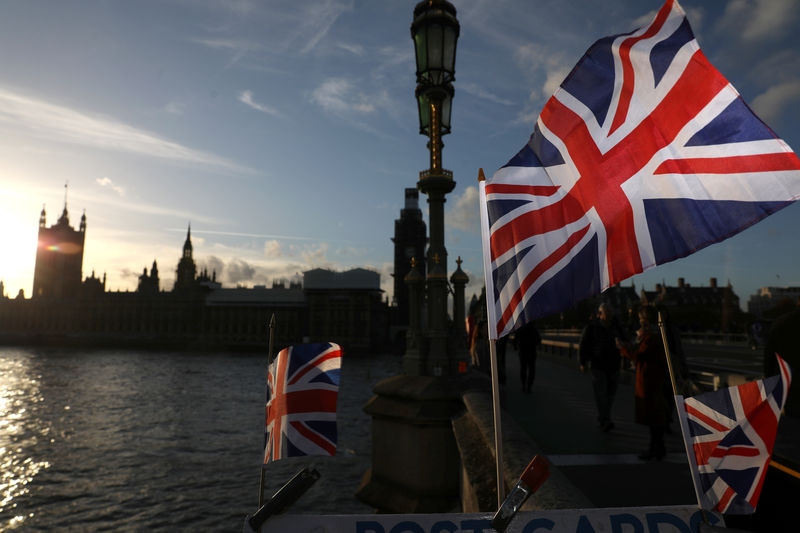StockBeat: Brexit Hiccup Awaits Complacent Markets

By Geoffrey Smith
Investing.com — European investors have been pressing the snooze button on their Brexit alarm clocks for four years now. However, they will have to wake up this week, and markets are already showing the first signs that that is happening.
The FTSE 250, the more domestically-focused of the two benchmark U.K. indices, was the biggest loser in western Europe on Monday, falling 0.7% after a steady flow of news over the weekend that talks about the trading relationship between the two sides after the end of the post-Brexit transition agreement on December 31st were close to breaking down. The U.K. tabloid The Sun reported early on Monday that Prime Minister Boris Johnson could call off further talks “within hours”, while EU chief negotiator Michel Barnier briefed EU leaders that there were still “serious divergences” between the two (over the familiar issues of fishing rights, state aid and dispute resolution mechanisms).
The risk of a disorderly end to the transition is naturally negative for many European companies too, and the Stoxx 600 was down, too, albeit by only 0.4%.
This is not a major sell-off. It comes off the back of an 11% rise for the FTSE250 in the last month and a 7.1% rise for the Stoxx. However, the market has – quite naturally – assumed that it had more important things to worry or get excited about for most of the last four years, and just as naturally assumed that a deal would be struck ahead of time, as too much is riding on the outcome for either side to want to risk a chaotic transition.
That complacency had not, until now, been shaken by last-minute threats and posturing on both sides. Seasoned EU-watchers know that the bloc never takes a decision before it absolutely has to. But that moment – arguably – arrives on Thursday, when EU leaders are due to meet. Should they fail to strike a political agreement, then the chance of completing a legal text that can pass all the remaining ratification processes by year-end is surely gone.
So far, so predictable. But what has changed in the last few days and weeks? According to U.K. press reports, the ruling Conservative Party has become more relaxed about the economic harm of a no-deal scenario, largely because it will be conflated with the economic harm from the pandemic, the effects of which are much more immediately visible across the country. That has tilted the risk-reward balance more than many appreciate.
On the EU side, little has changed – because, as Berenberg Bank analyst Kallum Pickering points out – not much can change, given that Barnier has little wiggle room within the mandate given him by EU member states. For the EU, the question remains: how much pain is it willing to inflict on Ireland (the country most exposed to Brexit disruptions) to get the deal it wants. Against this backdrop, French President Emmanuel Macron’s intervention last week – threatening to veto any agreement that concedes too much – should not be construed as the willingness to tolerate chaos on the Irish border and in the Channel ports forever. Rather, Macron knows that whatever disruptions occur will hit the U.K. economy harder than the EU one. His calculation, shared by many, is that a month of border troubles will put much more pressure on the British to make concessions than it will the rest of Europe.
Either way, a “no-deal scenario” is unlikely to last for very long. The dip in sterling, and in U.K. stocks, prefigured in today’s options market is more than likely to be a buying opportunity as markets move on – however unevenly – to a new equilibrium.
Or, as Paul Donovan, chief economist with UBS Global Wealth Management said in a morning podcast: “Do not pay attention to the tantrums of politicians – it only encourages them.”

